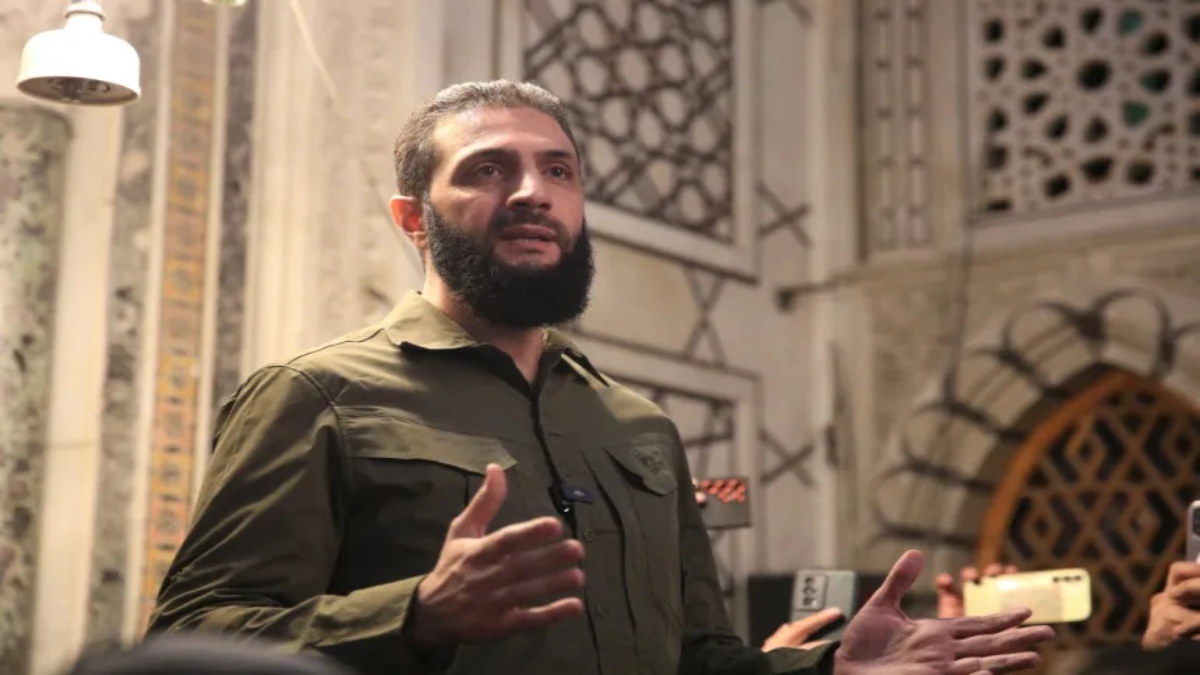The United States has lifted a $10 million bounty on Ahmed al-Sharaa, the leader of Hayat Tahrir al-Sham (HTS), which was the strongest rebel group that emerged after the fall of Syrian President Bashar Al Assad’s regime. The bounty was lifted following the first face-to-face meeting between American diplomats and the HTS leadership.
Barbara Leaf, the State Department’s senior diplomat for the Middle East, announced the move on Friday. She said that Sharaa had given assurance to the American diplomats that Islamic State (IS) and other terrorist groups would not be allowed to operate in Syrian territory.
Leaf noted that the US delegation told Sharaa that they would no longer offer the $10m reward for his capture. They maintained that the bounty would complicate the efforts to hold talks with the HTS leadership in the future. “It was a policy decision … aligned with the fact that we are beginning a discussion with HTS,” Leaf said.
“So if I’m sitting with the HTS leader and having a lengthy detailed discussion about the interests of the US, interests of Syria, maybe interests of the region, it’s suffice to say a little incoherent then to have a bounty on the guy’s head," she added. While making the announcement, Leaf was accompanied by the presidential envoy for hostage affairs, Roger Carstens, and Daniel Rubinstein, a senior adviser who has been put in charge of handling US relations with the new forces running Syria.
Fall of Assad should end Iran’s influence in the region: Leaf
Leaf emphasised the fall of Assad’s draconian regime should mark an end to the Iranian influence in Syria. “What our government would like to see is a Syria that can stand on its own two feet, that can regain, like its neighbour, Iraq, a full measure of sovereignty over its own affairs,” she said.
During the meeting, the American delegation raised questions about the whereabouts of Austin Tice, an American journalist who went missing in Syria in 2012. They also raised concerns about Majd Kamalmaz, a Syrian-American psychotherapist, and other US citizens who disappeared during Assad’s rule, The Guardian reported.
Impact Shorts
More ShortsWhat about the Kurds?
It is pertinent to note that the United States has not had diplomatic relations with Syria since closing its embassy in 2012. Another issue which propped up during the Friday meeting was the Kurds in Syria. The group has been a strong ally of the United States and helped the country to deal with the presence of Islamic State in the region.
This complicates things since Turkey which helped the rebel groups in Syria has been urging outside powers to cut their support for the Kurdish militia in northern Syria, the People’s Defence Units (YPG), which make up the core of the counter-IS alliance, the US-backed Syrian Democratic Forces (SDF). Turkey has already deemed the YPG as a “terrorist organisation”.
On Thursday, Turkey’s president, Recep Tayyip Erdoğan, said: “In the upcoming period we do not believe that any power will continue to collaborate with terrorist organisations. The heads of terrorist organisations such as Islamic State and PKK-YPG will be crushed in the shortest possible time.”
While addressing the matter, Leaf said that the US is seeking a compromise over the SDF’s future. “We are working energetically in discussions with Turkish authorities, also with the SDF,” she said. “We think the best way ahead is for a ceasefire around Kobane [a Kurdish stronghold on the Turkish border] and that we work to find what I would call a managed transition in terms of SDF role in that part of the country."
“So I think we’re working above all to de-escalate things there, to not distract from the really critical counter-Isis fight and the critical role that the SDF has in managing foreign terrorist fighter detention facilities, while Damascus and the SDF hopefully begin a dialogue themselves," she added. The meeting took place a day after the Pentagon stated that 2,000 US troops are currently stationed in Syria. This was a significant jump from the 900-figure which was pushed by the American officials.
With inputs from agencies.
)